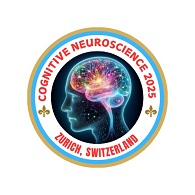Sessions/ Tracks
1. Artificial Intelligence in Neurology
Artificial Intelligence (AI) is reshaping the field of neurology by improving diagnostic accuracy, predicting disease progression, and enabling personalized treatment strategies. AI technologies, particularly machine learning algorithms, are being applied to analyze complex datasets from brain imaging, genetic studies, and patient medical histories. AI can detect early signs of neurological conditions like Alzheimer's disease, Parkinson’s disease, and multiple sclerosis, enabling timely interventions. By analyzing patterns in vast amounts of clinical data, AI also helps predict disease outcomes, assisting clinicians in making more informed decisions. Moreover, AI-powered tools are now used to analyze neuroimaging data, automating the detection of abnormalities in MRI or CT scans that might otherwise be missed. As AI continues to evolve, it holds the promise of transforming neurology by enhancing diagnostic capabilities, accelerating research, and offering individualized treatment approaches, ultimately improving patient care and outcomes in neurological disorders.
2. Molecular Brain Research
Molecular brain research investigates the intricate biochemical processes that govern brain function, with the goal of understanding the mechanisms underlying neurological diseases. This field focuses on how neurotransmitters, proteins, and genes influence neuronal communication, signaling pathways, and synaptic plasticity. A deep understanding of these molecular mechanisms is crucial for developing effective treatments for disorders such as Alzheimer's, Parkinson’s disease, and epilepsy. By studying protein aggregation, gene mutations, and signaling dysfunctions at a molecular level, researchers can identify biomarkers for early disease detection, improve diagnostic methods, and develop targeted therapies that address the root causes of these conditions. Advancements in molecular research also pave the way for personalized medicine approaches, which tailor treatments based on individual genetic profiles, offering hope for more effective interventions in the future.
3. Gene Therapy in Neurological Disorders
Gene therapy is a revolutionary approach to treating neurological disorders by targeting their genetic causes. This cutting-edge technique involves the introduction, alteration, or silencing of genes within a patient’s cells to correct defective genes or compensate for missing ones. For conditions like spinal muscular atrophy (SMA), gene therapy has already shown remarkable success, offering life-changing results by restoring lost motor function. Research is ongoing to explore the potential of gene therapy for treating other neurological conditions such as Parkinson’s disease, Alzheimer’s disease, and Huntington’s disease. The goal of gene therapy in neurology is to provide long-lasting, potentially curative treatments for conditions that were previously thought to be untreatable. While challenges remain, including delivery methods and safety concerns, the future of gene therapy in neurology looks promising, offering hope for patients with genetic neurological disorders.
4. Neuroplasticity and Brain Rehabilitation
Neuroplasticity refers to the brain’s ability to reorganize and form new neural connections in response to learning, injury, or disease. This dynamic process is crucial for rehabilitation after brain injuries such as strokes, traumatic brain injuries, or neurodegenerative diseases. Neuroplasticity allows the brain to compensate for damaged areas by forming new pathways for cognitive, motor, and sensory functions. Brain rehabilitation strategies leverage neuroplasticity by encouraging patients to engage in targeted exercises, cognitive training, and physical therapy that stimulate specific brain regions. Research in this field is focused on understanding how to optimize neuroplasticity to enhance recovery outcomes. Techniques like repetitive transcranial magnetic stimulation (rTMS) and constraint-induced movement therapy are being explored as ways to promote neuroplastic changes and improve recovery in conditions like stroke, spinal cord injuries, and cerebral palsy.
5. Epigenetics and Neurological Disorders
Epigenetics studies the chemical changes to DNA and associated proteins that affect gene expression without altering the DNA sequence itself. In the context of neurology, epigenetic modifications are believed to play a significant role in the development of neurological disorders. Environmental factors, such as stress, diet, and toxins, can trigger epigenetic changes that influence brain function and contribute to conditions like depression, schizophrenia, and neurodegenerative diseases like Alzheimer’s and Parkinson’s. Understanding these epigenetic mechanisms opens up new avenues for treatment. By targeting the epigenome, researchers hope to reverse harmful gene expression changes associated with disease. This emerging field offers promise for developing novel therapeutic strategies that could prevent or treat neurological disorders by correcting epigenetic alterations.
6. Neuroinflammation and Mental Health
Neuroinflammation, the inflammation of the brain and central nervous system, is a key factor in the pathophysiology of many mental health disorders, including depression, anxiety, schizophrenia, and bipolar disorder. Chronic neuroinflammation is thought to disrupt normal brain function by damaging neurons, altering neurotransmitter systems, and impairing synaptic plasticity. Recent studies have shown that individuals with psychiatric disorders often have elevated levels of inflammatory markers in their brains and blood. Understanding the link between neuroinflammation and mental health has led to a new focus on anti-inflammatory treatments as potential therapies for psychiatric conditions. Research is exploring various anti-inflammatory drugs, lifestyle changes (such as diet and exercise), and immune-modulating treatments to reduce neuroinflammation and alleviate symptoms. By targeting neuroinflammation, scientists hope to develop more effective treatments for a range of mental health disorders, offering new hope for patients who have not responded well to traditional therapies.
Alzheimer’s and Parkinson’s diseases are two of the most prevalent neurodegenerative disorders that primarily affect older populations. Alzheimer’s disease is characterized by progressive memory loss, confusion, and behavioral changes, largely due to the accumulation of amyloid plaques and tau tangles in the brain, leading to neuron death. Parkinson’s disease, on the other hand, primarily affects movement, causing tremors, rigidity, bradykinesia (slowness of movement), and postural instability due to the loss of dopamine-producing neurons in the substantia nigra. Both diseases have a significant impact on the quality of life, and while there are treatments aimed at alleviating symptoms (e.g., dopamine replacement for Parkinson's), no cure currently exists. Research is focusing on early detection, neuroprotective therapies, and understanding the genetic and environmental factors contributing to these diseases. Advanced neuroimaging, biomarker discovery, and clinical trials hold promise for improving outcomes and eventually finding more effective treatments.
Neurosurgery is a specialized field that focuses on the surgical treatment of disorders of the brain, spinal cord, and peripheral nervous system. Neurosurgeons treat a variety of conditions, including brain tumors, aneurysms, spinal cord injuries, and herniated discs. Spinal surgery is particularly crucial as it addresses issues such as spinal stenosis, scoliosis, and degenerative disc disease, which can cause debilitating pain or mobility loss. Technological advancements in minimally invasive surgery, including robotic-assisted procedures and endoscopic techniques, have significantly improved recovery times and reduced the risk of complications. These advancements are helping neurosurgeons to treat complex neurological conditions with greater precision, offering patients improved outcomes and a faster return to normal activities.
Cognitive decline is a significant concern in aging populations, with conditions like mild cognitive impairment (MCI) and dementia becoming more common as people live longer. The aging brain undergoes structural and functional changes that can lead to declines in memory, attention, executive function, and language. These changes may be exacerbated by lifestyle factors, such as poor diet, lack of exercise, and chronic stress, which increase the risk of neurodegenerative diseases like Alzheimer’s and vascular dementia. Cognitive decline can severely impact an individual’s independence and quality of life. Research is focused on understanding the underlying biological mechanisms, including neuroinflammation, oxidative stress, and neurogenesis, with the aim of developing interventions that preserve cognitive function and delay or prevent dementia.
The COVID-19 pandemic has had widespread effects on public health, including neurological implications that are still being studied. Although primarily a respiratory virus, SARS-CoV-2 has been shown to affect the brain and nervous system in various ways. Neurological symptoms of COVID-19 include headaches, dizziness, confusion, and anosmia (loss of smell), and more severe complications such as strokes, seizures, and encephalitis have been observed. Long-term effects, often referred to as "long COVID," include persistent cognitive deficits, known as "brain fog," as well as fatigue, depression, and anxiety. Ongoing research is focused on understanding how the virus affects the central nervous system, the mechanisms behind neurological complications, and how to manage long-term neurological symptoms in COVID-19 survivors.
Addiction is a complex neurological disorder that involves changes in the brain’s reward system, particularly the mesolimbic dopamine pathway. Substances like alcohol, drugs, and even behaviors such as gambling trigger the release of dopamine, reinforcing the behavior and leading to compulsive use. Over time, repeated exposure to addictive substances alters the brain’s chemistry and circuitry, making it difficult for individuals to stop. This neurobiological process is linked to changes in brain regions involved in motivation, decision-making, and impulse control, such as the prefrontal cortex and amygdala. Advances in the neurobiology of addiction are helping to identify new therapeutic targets, including medications that can modulate dopamine receptors, and behavioral interventions designed to rewire the brain’s reward system.
Brain-computer interfaces (BCIs) are groundbreaking technologies that enable direct communication between the brain and external devices, such as prosthetics, computers, or communication aids. BCIs work by recording electrical signals from the brain and translating them into commands that can control devices. These interfaces hold immense potential for patients with neurological disorders, including paralysis, stroke, and amyotrophic lateral sclerosis (ALS), by enabling them to regain lost functions, such as movement or communication. Ongoing research is improving the accuracy and efficiency of BCIs, with the goal of creating more seamless, user-friendly systems. BCIs are expected to revolutionize the treatment of neurological conditions, offering enhanced independence and quality of life to those with severe disabilities.
Sleep disorders, such as insomnia, sleep apnea, and narcolepsy, can have profound effects on neurological health. Chronic sleep deprivation disrupts brain function, impairing cognitive performance, memory, and emotional regulation. In particular, conditions like sleep apnea, which cause intermittent oxygen deprivation during sleep, are linked to cognitive decline, increased risk of stroke, and neurodegenerative diseases. Studies show that poor sleep quality accelerates the progression of diseases such as Alzheimer’s and Parkinson’s. Understanding the neurological impact of sleep disorders is critical, as improving sleep quality through interventions like cognitive-behavioral therapy, continuous positive airway pressure (CPAP) therapy, or medication could help reduce the risk of neurological diseases and improve overall brain health.
Traumatic brain injury (TBI) occurs when an external force disrupts normal brain function, resulting in a wide range of cognitive, emotional, and physical impairments. The neuropsychology of TBI examines how brain injuries affect behavior, memory, and decision-making, with an emphasis on understanding the cognitive and emotional consequences. TBI can result in problems such as memory loss, attention deficits, personality changes, and mood disorders. Depending on the severity of the injury, recovery can vary, with some individuals experiencing long-term effects. Rehabilitation strategies, including cognitive therapy, physical therapy, and psychological counseling, are crucial for helping individuals recover and manage the effects of TBI. Research into neuroplasticity is also informing new therapeutic approaches to promote brain healing and recovery following TBI.
Clinical neurophysiology is the study of the electrical activity of the brain, spinal cord, and nerves, and plays a critical role in diagnosing and managing neurological disorders. In stroke patients, neurophysiological tests, such as electroencephalography (EEG) and electromyography (EMG), help assess brain function and monitor the extent of neural damage. These techniques are vital for identifying the type of stroke (ischemic or hemorrhagic) and determining the best course of treatment. Additionally, neurophysiological monitoring during stroke rehabilitation can help track recovery, guide therapeutic interventions, and improve patient outcomes. Advances in neurophysiology are helping to refine stroke care, enabling earlier diagnosis and more targeted treatments, thereby improving recovery and reducing the risk of permanent disability.
Pediatric neurology is a specialized field that focuses on diagnosing and treating neurological conditions in children, including epilepsy, cerebral palsy, neurogenetic disorders, and developmental delays. Epilepsy, one of the most common neurological disorders in children, is characterized by recurrent seizures caused by abnormal electrical activity in the brain. Pediatric epilepsies can vary widely in their severity and underlying causes, ranging from genetic conditions to brain injuries or infections. Early diagnosis and treatment are critical in managing epilepsy, as untreated seizures can lead to developmental delays and cognitive impairment. Treatment options include antiepileptic medications, lifestyle modifications, and, in some cases, surgical interventions. Advances in pediatric neurology are exploring the genetic basis of epilepsy and the use of advanced imaging techniques to better understand brain function and identify areas of the brain involved in seizures. The field is also focused on developing personalized treatment plans that take into account the specific needs of each child, improving long-term outcomes and quality of life.
The brain is a highly complex organ, comprising different regions responsible for various cognitive, sensory, motor, and emotional functions. The brain’s structure can be divided into several parts: the cerebrum, cerebellum, brainstem, and limbic system, each with distinct roles. The cerebrum, the largest part of the brain, is involved in higher-order functions such as reasoning, memory, and voluntary movement. The cerebellum coordinates motor control and balance, while the brainstem regulates vital functions such as heart rate, breathing, and sleep. The limbic system is responsible for emotions and memory formation. The interplay between these regions ensures smooth and coordinated brain activity, which underpins behavior and cognition. Understanding brain structure and function is critical for diagnosing and treating neurological disorders, as disruptions in brain networks can lead to cognitive deficits, mood disorders, or motor impairments. Advancements in neuroimaging and brain mapping techniques have enhanced our understanding of the brain’s intricate organization and its role in human behavior.
Cognitive neuroscience is the interdisciplinary field that studies the neural processes underlying cognition, including perception, memory, language, attention, and decision-making. It combines knowledge from neuroscience, psychology, and cognitive science to understand how the brain enables complex cognitive functions. Techniques like functional magnetic resonance imaging (fMRI) and electroencephalography (EEG) allow researchers to observe brain activity during various cognitive tasks, shedding light on the specific brain regions involved in different cognitive processes. Psychology contributes to cognitive neuroscience by providing insights into human behavior and mental processes, including how emotions, motivations, and external factors influence cognition. This field is instrumental in advancing our understanding of cognitive disorders, such as dementia, attention-deficit hyperactivity disorder (ADHD), and depression, by exploring the neural mechanisms behind these conditions and developing targeted therapies.
Neuroinformatics and computational neuroscience are fields that use computational models and advanced data analytics to understand the brain’s complex structure and function. Neuroinformatics involves the collection, integration, and analysis of large-scale data from neuroimaging, genetics, and electrophysiology to create comprehensive models of the brain’s organization. Computational neuroscience goes further by developing mathematical and computational models to simulate brain activity and predict neural processes. These fields are essential for understanding how neurons interact within neural circuits and contribute to behavior, learning, and memory. By applying computational tools, researchers can model the effects of neurological diseases, such as Alzheimer’s and epilepsy, and simulate the impact of various treatments. Neuroinformatics and computational neuroscience are also crucial in developing personalized medicine approaches, as they help identify individual differences in brain structure and function, enabling tailored therapies for patients.
Geriatric psychiatry and neurology focus on the mental health and neurological conditions affecting older adults. As the global population ages, the prevalence of age-related conditions such as dementia, Alzheimer’s disease, Parkinson’s disease, and depression increases. Geriatric psychiatry addresses the psychological and cognitive aspects of aging, focusing on mood disorders, anxiety, and cognitive decline. Neurological conditions in the elderly often involve a combination of age-related changes in brain structure and function, as well as underlying neurological diseases. Geriatric neurology involves diagnosing and managing these disorders, with an emphasis on improving quality of life, enhancing cognitive function, and managing symptoms. Treatment strategies often involve a multidisciplinary approach, including pharmacotherapy, cognitive therapies, and social interventions. Research in geriatric psychiatry and neurology is focused on improving early diagnosis, understanding the impact of aging on brain health, and developing targeted interventions that address the unique needs of elderly patients.
Past Conference Report
Cognitive Neuroscience 2024
Conference Series llc LTD, take immense pleasure in inviting all the participants from all over the world to attend our Conference entitled “34th International Conferences on Neurology and Cognitive Neuroscience (Cognitive Neuroscience 2024)” to be held during February 01-02, 2024 Dubai, UAE.
Cognitive Neuroscience is organized around the theme “Interdisciplinary Approach for Innovation & Invention in Neuro Science Research”
Cognitive Neuroscience 2024 will give a perfect platform for sharing and developing innovative ideas on the latest developments and future perspectives in the field of Neurology for the treatment of various Neurological disorders. Attending the Cognitive Neuroscience 2024 is an investment in your career growth. It’s the best way to express your passion towards the Neurology research and update your skills and enhance your knowledge
Cognitive Neuroscience 2024 participants include Professors, Researchers, Physicians, Business Delegates, Scientists, students all over the world. The goal of the COGNITIVE NEUROSCIENCE is to provide you with a rare opportunity to build on what you already know in the research and development of new therapies and techniques and accelerate efforts to enhance health and well-being.
Significance and Scope:
According to International survey of country Resources about 90% of population is suffering from brain disorders. The provision collected information from several experts’ availability of neurological services is much needed. Many neurological disorders results in considerable morbidity where special attention is paid to Rehabilitation and disability. Mostly neurological resources grossly less in world
WHO has produced report that collaboration with several non-governmental organization including Alzheimer’s disease international, European Parkinson disease Association, International bureau for Epilepsy, World headache alliances and World federation neurology
Young Scientist Benefits:
Our conferences provide best Platform for your research through oral presentations.
Share the ideas with both eminent researchers and mentors.
Young Scientist Award reorganization certificate and memento to the winners
Young Scientists will get appropriate and timely information by this Forum.
Platform for collaboration among young researchers for better development
Award should motivate participants to strive to realize their full potential which could in turn be beneficial to the field as whole.
Past Reports Gallery






















